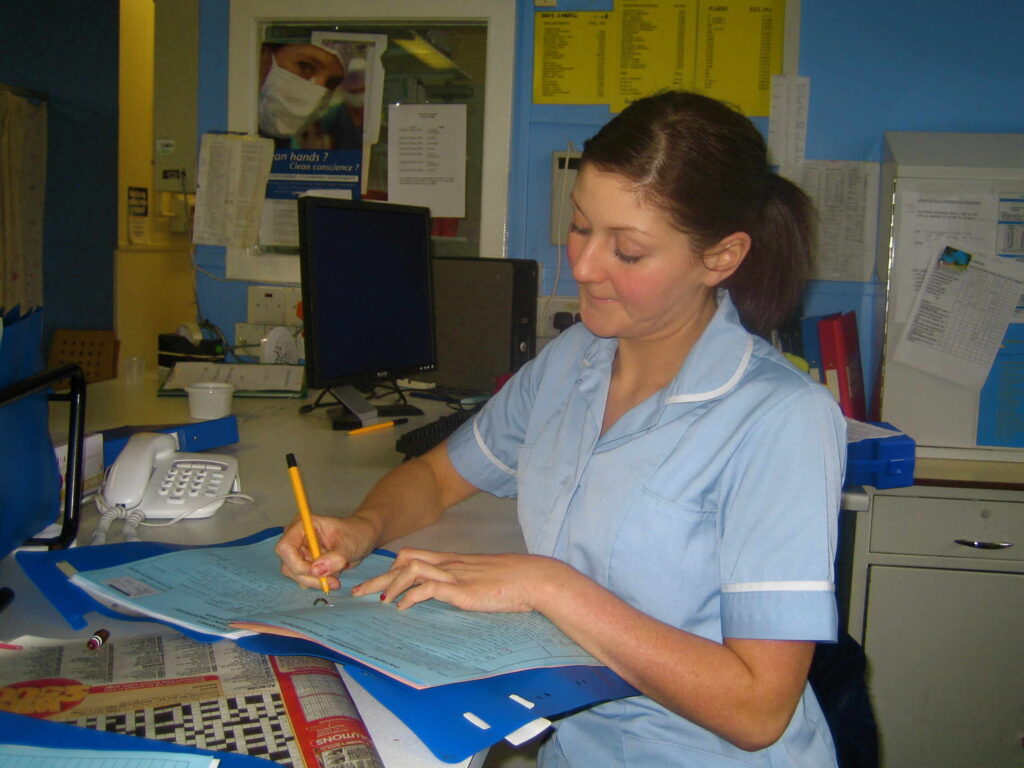A career in the healthcare industry can take many shapes. You can also continue learning throughout your career to try different roles based on your preferences. If you are thinking of becoming a nurse in the UK, you would want to know about the roles you can take on. You must understand that there are different types of nurses in the UK and every nurse can continue to progress throughout their careers. You can also get specialist training after completing your nursing degree and take on a role that suits you the most.
Types of Nurses in the UK
Enrolling in a nursing degree is just the beginning. If you are a registered nurse, you can look into specialist roles to figure out which training program you should join. Here are the types of nurses in the UK:
1. General Practice Nurse
A general practice nurse provides patients in general practice with care services. Instead of hospitals, GP nurses work in general practice as a part of the primary healthcare team of doctors and pharmacists. Several GP nurses share responsibilities in larger practices that see an influx of patients every day. As a GP nurse, you will be responsible for multiple tasks including obtaining blood samples, providing health education to the masses, and wound treatment.
Once you have a nursing degree, you will have to undergo further training or enroll in a university course to become a general practice nurse. However, you can also start working as a GP nurse and undertake the training later.
2. Health Visitor Nurse
A health visitor nurse, also known as a specialist community public health nurse (SCPHN), is a registered midwife or nurse. These nurses work with families with a child from ages 0 to 5 to identify health problems early on. The primary duties of health visitor nurses are to support parents as they transition into parenthood, assess the growth of the children, and help protect the mental health of the mother and the child.
In order to become a health visitor nurse, you will have to sign up for the health visitor training programme, known as the Specialist Community Public Health Nursing – Health Visiting (SCPHN – HV). However, you must be a registered nurse or midwife to apply to the SCPHN – HV programme.
3. Neonatal Nurse
A neonatal nurse is someone who takes care of newborn babies who are either sick or born prematurely. As part of their duties, neonatal nurses check medications for the babies, manage their fluids, and initiate resuscitation in the case of an emergency.
You can apply for the job of a neonatal nurse after becoming a registered nurse in the UK. However, some employers require applicants to have basic knowledge of neonatal care. Neonatal nurses are also asked by their employers to sign up for training modules after getting six months of experience.
4. Theatre Nurse
A theatre nurse is someone who offers assistance to both the healthcare professionals and the patients at every step of operations. Theatre nurses are responsible for educating patients about the procedure as well as helping the medical team in the operation theatre.
You can apply for this role after becoming a registered nurse. Theatre nurses have to undertake specialist training after completing their probation period.
5. Prison Nurse
A prison nurse works in a prison and provides care and support to the prisoners. Prison nurses are responsible for a long list of tasks including conducting health assessments, treating minor injuries and illnesses, and managing long-term conditions.
Registered nurses in the UK can apply to work as prison nurses. However, they are offered training to help them adjust to the unique environment they will be working in.
6. District Nurse
A district nurse travels to residential care homes or homes of individuals to offer their services. They are often responsible for assessing the healthcare-related needs of patients and offering them quality care.
After becoming a registered nurse, you can sign up for a specialist training programme to become a district nurse.
7. Protecting the Future – School Nurses in the UK
A school nurse is a specialist community public health nurse (SCPHN) who works with young children to improve their health and reduce vulnerabilities. School nurses can work in different settings including schools and local health centers. Their duties also vary depending on the setting they work in. The primary responsibilities of school nurses include supporting children with long-term health needs, helping children manage lifestyle concerns, and ensuring the voices of children are heard.
Registered nurses can complete Specialist Community Public Health Nursing – School Nursing (SCPHN – SN) training programme to become school nurses.
Now that you are familiar with different types of nursing roles in the UK, you can make an informed decision. If you are a registered or specialist nurse in the UK who is looking for the right job, reach out to ESGO today. We will help you connect with employers who not only pay well but also value every employee equally.




